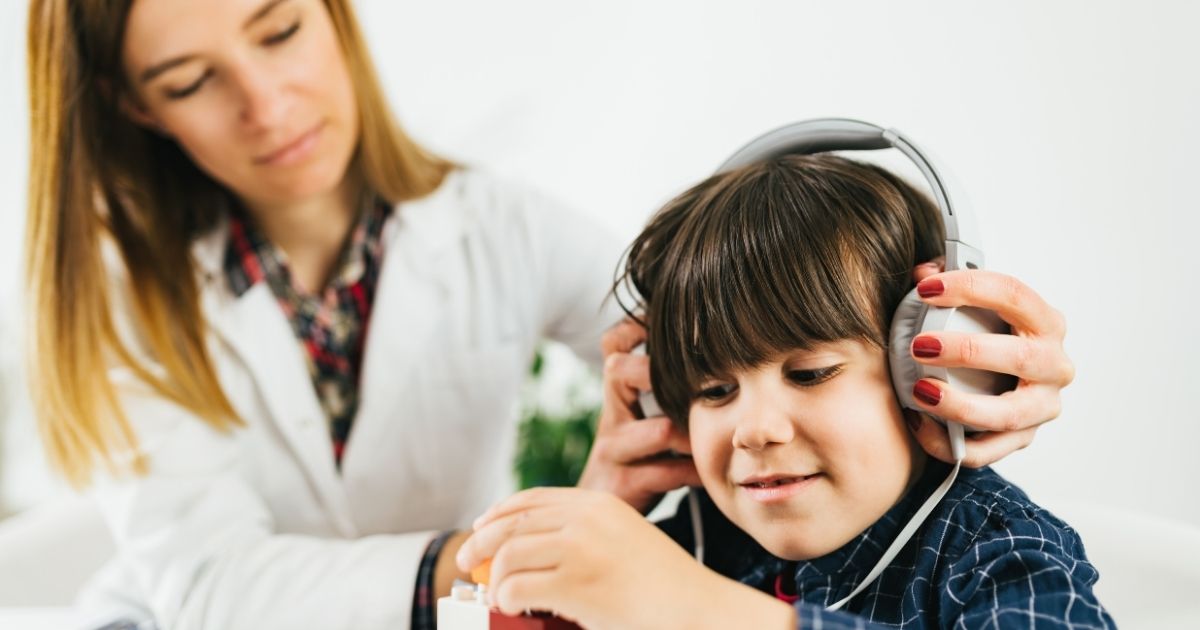Unfortunately, many school districts do not employ an educational audiologist on staff. This glaring absence means no one working there thoroughly understands hearing loss and its impacts on learning. Without audiologists, schools lack professionals who can properly monitor students’ hearing devices, advise on classroom acoustics, oversee remote mic usage that assists hearing impaired kids, and empower those students to self-advocate.
While teachers of the deaf provide some overlaps in supporting deaf and hard of hearing students, their skillsets differ substantially from audiologists. As an audiologist myself, I comprehend hearing loss intricacies deeply but cannot adequately instruct deaf children on academic coursework – that pedagogical expertise falls to teachers of the deaf.
Hearing loss qualifies as a low incidence disability, meaning the condition affects a relatively small portion of students. Consequently, many districts fail to budget for or prioritize hiring audiologists and specialized teachers that these children rely on. However, the law entitles hearing impaired students to access both educational audiologists and teachers of the deaf, professionals that maximize their academic performance and classroom engagement.
Without audiologists, schools lack crucial insight into properly monitoring assistive devices, modifying acoustic environments, leveraging remote mic systems, and advising teachers on best tactics for integrating hearing impaired kids. Students wrestle without guidance on self-advocacy skills as well. It is unconscionable to abandon children with hearing loss by denying them support.
All districts must work to recruit or contract with audiologists, even if only on periodic consulting bases, rather than leave hearing impaired students struggling without this expertise. Partnering with educational audiologists allows schools to uphold both legal obligations and moral imperatives to foster inclusive, productive learning for all students facing hearing loss.
IDEA and what it requires
IDEA requires that equipment children with hearing loss need be working every day. An educational audiologist is the only person qualified to select Hearing Assistive Technology (HAT) equipment for an individual child, assure that it is working well, and teach the child and school staff how to use it optimally.
Additional services include assisting teachers in how to present information, how to be sure a child with hearing loss is receiving information, understanding the need to repeat other students comments, addressing classroom acoustics, assuring that all film and video are captioned, and assuring that teachers understand how to use HAT.
Educational audiology is a “related service” under IDEA. Families should press to receive Educational audiology services. If a child has an IEP families should insist on having an Educational Audiologist. If a child has a 504 a request for an Educational Audiologist should also be requested.
Where to find an Education Audiologist?
If your school district does not have an educational audiologist, there are a number of possibilities for finding one.
- Contact the Educational Audiology Association (edaud.org)
- Contact your child’s clinical audiologist and ask them if they can provide educational audiology services or know someone who can
- Contact your state speech and hearing association and ask them if they have members who can provide the services.
- Ask your school district if they can obtain services from another school district
Do not let the school district tell you that because they do not have an educational audiologist and that, therefore, none is available. There is always a way to obtain necessary services. Tell them “Just do it.”
Jane Madell, PhD, has a consulting practice in pediatric audiology. She is an audiologist, speech-language pathologist, and LSLS auditory verbal therapist, with a BA from Emerson College and an MA and PhD from the University of Wisconsin. Her 45+ years experience ranges from Deaf Nursery programs to positions at the League for the Hard of Hearing (Director), Long Island College Hospital, Downstate Medical Center, Beth Israel Medical Center/New York Eye and Ear Infirmary as director of the Hearing and Learning Center and Cochlear Implant Center. Jane has taught at the University of Tennessee, Columbia University, Downstate Medical School, and Albert Einstein Medical School, published 7 books, and written numerous books chapters and journal articles, and is a well known international lecturer.
**this piece has been updated for clarity. It originally published on January 13, 2021







Hearing loss is an invisible disability and those with hearing loss especially the children who cannot hear well miss information in the classroom and in the end fail and drop out of school. Those who accommodate disabilities only serve the disabilities that are visible. This is why every school should have an Educational Audiologist available.